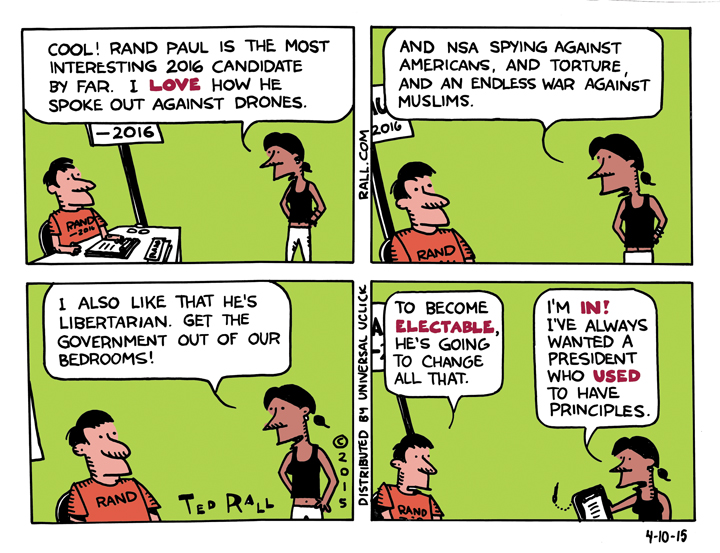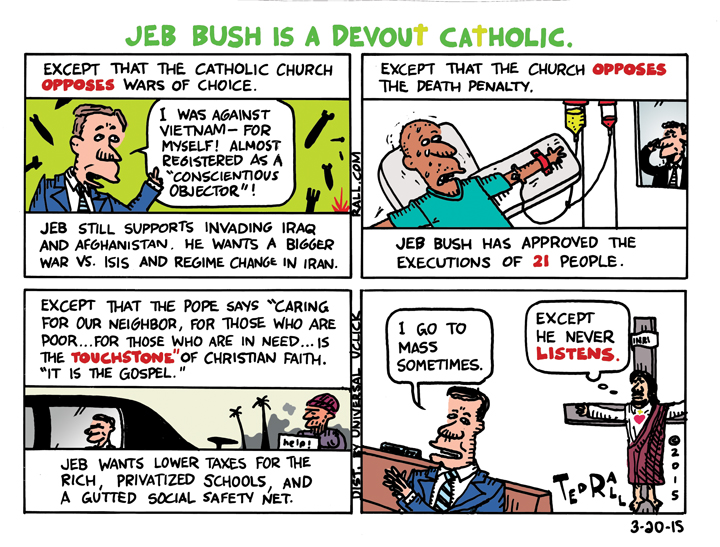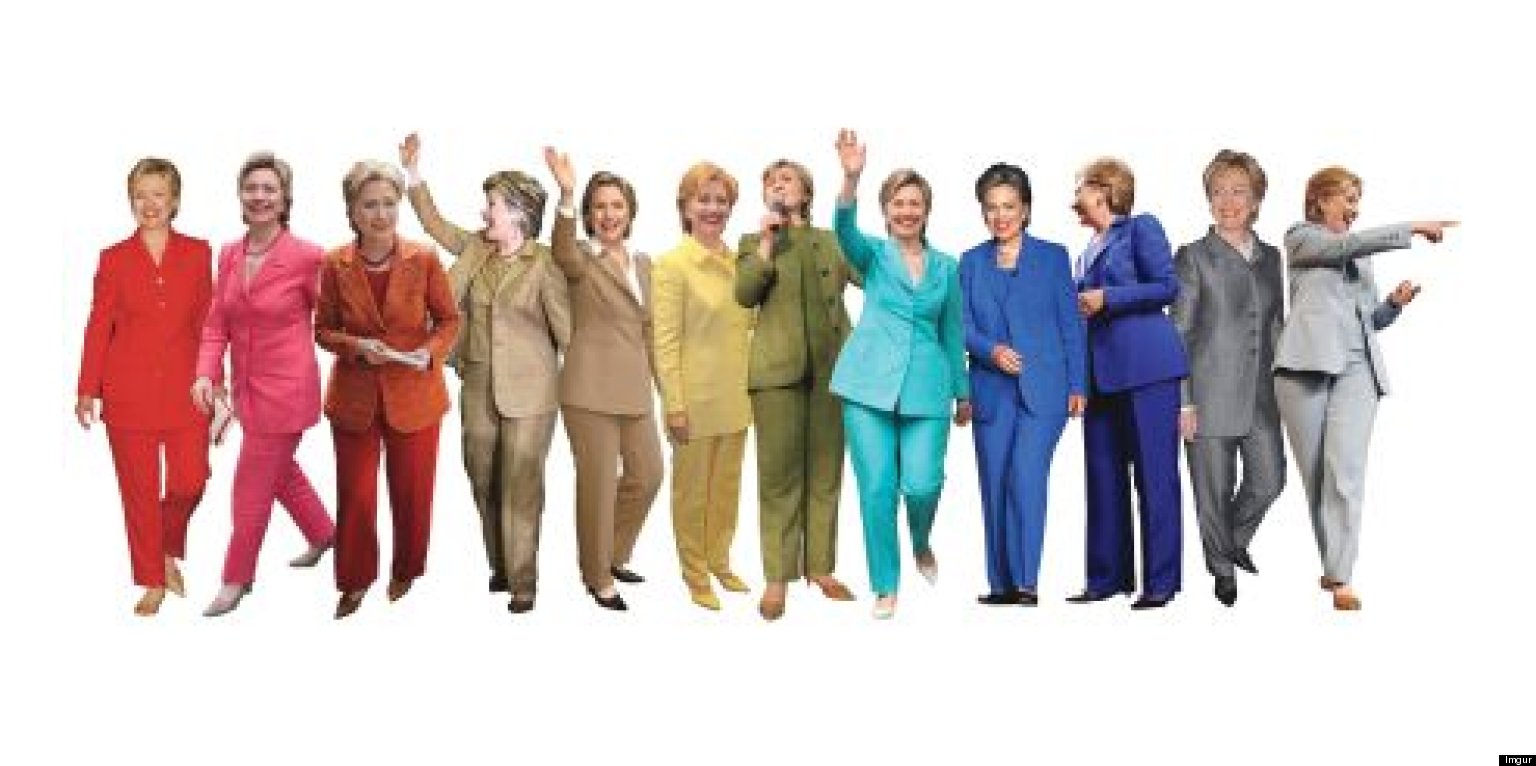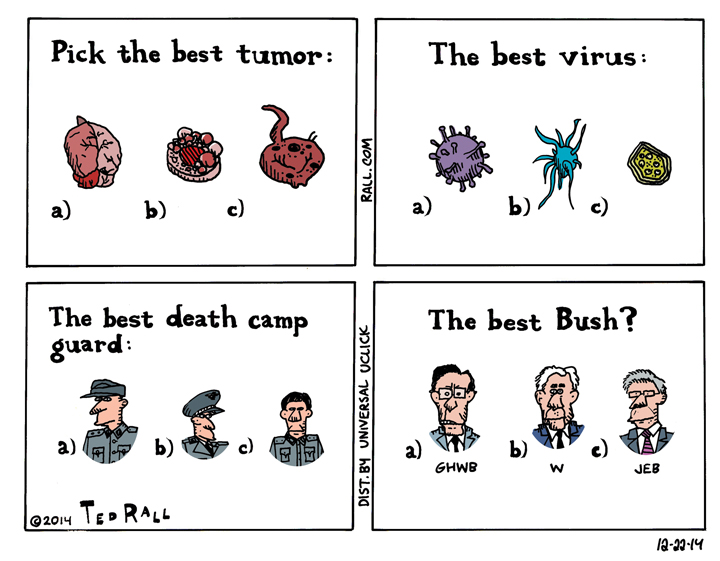
The revealing headline: “Hillary Clinton Will Run; She Still Has to Explain Why.”
The money quote from the story beneath that headline: “For months, Mrs. Clinton has lamented the stagnant wages holding back lower-income people and the concentration of wealth among a sliver of the wealthiest, a sentiment echoed in her first public remarks as a 2016 candidate.”
Linger on that sentence’s introductory phrase: “For months.”
Months?
!
What?
Hillary has been a political animal for decades. She’s been a possible future presidential candidate since at least 1996 — the year she last drove a car. She’s just getting around to figuring out what her politics are?
(By the way and speaking of which, someone in Hillaryworld needs to clue in She-Who-Must-Be-Driven to basic automotive vernacular. When one is a passenger, one does not say, as Secretary Clinton did yesterday, “when I was driving here.” Driving is something one does, not something that is done to you. Unless you are actually, you know, driving, the correct phrase would be: “when I was riding here.” Unless, of course, this is one of those misremembering “dodging sniper fire” senior moments.)
Maybe I took high school civics class too seriously, but I thought the correct order was:
First, come up with list of ideas, policies, and bills that you would, as President of the United States, promote, enact and propose.
Second, run for President of the United States.
This, however, is no longer how a professional political class so removed from the lives of the average citizen that they not only don’t drive but don’t even know words about driving — who think being worth $25 million equals “dead broke,” and that earning $12 million a year makes you “not truly well off” — sees it. First, they fundraise. Second, they run. Third, they figure out what they believe in.
With a campaign warchest likely to set new records, the task of selling influence in a 2017-2021 first term is well underway. Unless she dies or gets hosed by a new scandal, Hillary has the Democratic nomination all sewn up. Which means it’s time for the last priority: ginning up a platform.
At this writing, Clinton says she wants to be a “champion” for “everyday Americans.” What does that phrase even mean? As opposed to what — Americans who live outside the standard Sunday-to-Saturday space-time continuum? Is there some special eighth-and-a-halfth day for one percenters?
There are, she told Iowans, “four big fights that I think we have to take on.”
Hillary’s big fight #1: “We need to build the economy of tomorrow, not yesterday.” Question: will there be flying robots? If there are flying robots, I’m in! But not flying robot murderers, like we use to kill Pakistanis and Yemenis. Too much tomorrow.
Big fight #2: Strengthening families. “When families are strong, America is strong.” You’ve been warned, single people who drain America’s strength — Hillary is coming for you! “Because it’s your time. And I hope you’ll join me on this journey.” Hell-o, Oprah!
Big fight #3: Campaign finance reform. “We need to fix our dysfunctional political system and get unaccountable money out of it once and for all – even if that takes a constitutional amendment.”
Big fight #4: National security. “We need to protect our country from the threats that we see, and the ones that are on the horizon.”
With all due respect — in other words, none — Hillary’s “platform” reads like a mash-up of Dick Morris’ focus-grouped pabulum and a schoolchild answering test questions about a book she didn’t read.
The “big fight” thesis gets an F: Who’s against “an economy of tomorrow”? Does anyone oppose stronger families? If a presidential candidate has ever run in favor of letting threats go unanswered, it’s news to me.
Of Hillary’s “big four fights,” only a constitutional amendment to reverse the Citizens United decision has substance. But campaign finance reform is a low priority for Americans. What Americans care most about, polls have shown consistently, is the economy. People want more jobs, higher wages, better job security.
In all fairness, Hillary isn’t the only run-first-think-second presidential contender. With the exception of Rand Paul, there isn’t much beef on the Republican side either.
Still, Hillary’s lameness towers above the rest if for no other reason than the fact that she’s had at least 20 years to think about what she’d do as president. If this is all she can think up after all this time, how slowly will she react when she gets that hotline phone call at 3 a.m.?
(Ted Rall, syndicated writer and the cartoonist for The Los Angeles Times, is the author of the new critically-acclaimed book “After We Kill You, We Will Welcome You Back As Honored Guests: Unembedded in Afghanistan.” Subscribe to Ted Rall at Beacon.)
COPYRIGHT 2015 TED RALL, DISTRIBUTED BY CREATORS.COM








 Clinton is too far to the right and have never forgiven her for her positions on free trade agreements and voting in favor of the invasion of Iraq in 2003 keeps saying they want Massachusetts senator and consumer advocate Elizabeth Warren. Pictured at left, she would be challenging the former first lady from the Left. But Warren has repeatedly said she isn’t running, her fans don’t have much money, and her actions – well, more like her inaction in not showing up in key primary states like Iowa – support her
Clinton is too far to the right and have never forgiven her for her positions on free trade agreements and voting in favor of the invasion of Iraq in 2003 keeps saying they want Massachusetts senator and consumer advocate Elizabeth Warren. Pictured at left, she would be challenging the former first lady from the Left. But Warren has repeatedly said she isn’t running, her fans don’t have much money, and her actions – well, more like her inaction in not showing up in key primary states like Iowa – support her 




 Finally, there’s two other governors, both from the Midwest: John Kasich of Ohio and Scott Walker of Wisconsin.
Finally, there’s two other governors, both from the Midwest: John Kasich of Ohio and Scott Walker of Wisconsin.
